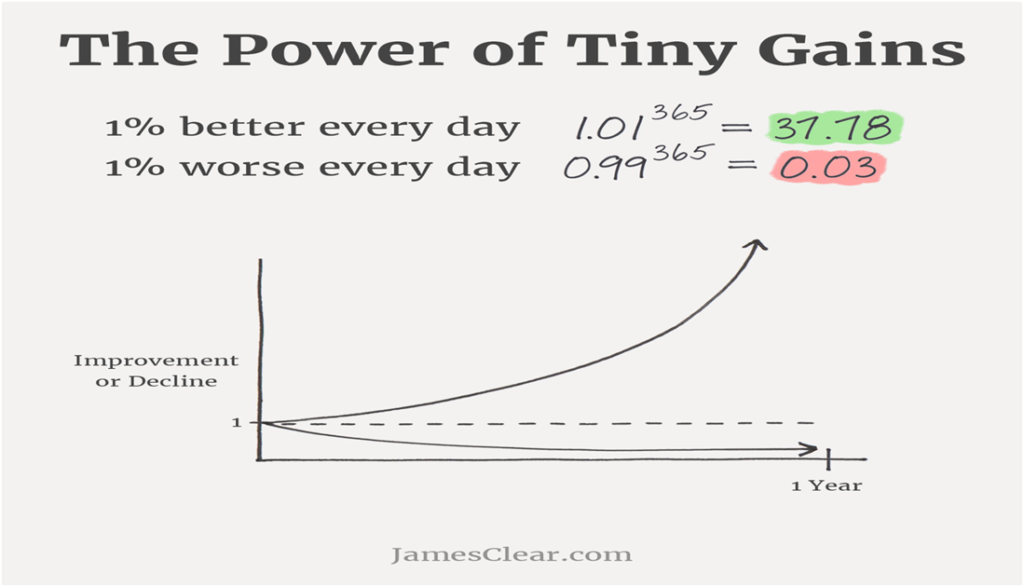
“Commitment and consistency”-the principle says that people will do as much as possible to appear consistent about their words and actions. Even to the extent of doing things that are basically irrational.
Matthew 8:21-22
21 Another of his disciples said to him, “Lord, allow me first to go and bury my father.”
22 But Jesus said to him, “Follow me, and leave the dead to bury their own dead.”
Commitment is you stay true to what you have said and what you would do, long after the mood you said it in has left. Commitment is living your dream. It is something like You will have to make the world go your way. You must eat and sleep your dream.
If you decide and do conscious deliverance with determined effort, nothing will stop you to live that dream. Master in one area of life and stay on the top in a year’s time.
If experience is the best teacher then your dreams are imprisoned.
Experience can cause you to stop progressing Because you keep judging your dreams by your experience, Judging your vision with your experience and you say no one has done it till now.
I tried that before.
Remember, the last chapter of your life is not yet written. Forget about what happened in the past, yesterday, and the day before. You live your life with passion and some drive…….
Do not give up so easily. Nothing can resist the will of the people they Made up in mind …

Dashrath Manjhi, popularly known as the “Mountain Man” is a legend who proved that nothing is impossible to achieve.
People laughed and made fun of him but he just continued with his work for 22 years. Manjhi’s firm determination to carve the huge mountain gives out a strong message that every hurdle can be crossed if one has kept a firm eye on his goal. He gave 22 years of his life to his village and made a difference in the lives of the people of this small village in the state of Bihar.
Consistency is when you refuse to stop. nobody will prevent you from accomplishing your goal. It means you will stand to every opposition. If anybody or anything prevents you see this as a temporal detour.
Consistent people will keep going, but inconsistent people will give themselves excuses to give up. “Therefore, my beloved brethren, be ye steadfast, unmovable, always abounding in the work of the Lord, forasmuch as ye know that your labor is not in vain in the Lord”

“In a certain town, there was a judge who neither feared God nor cared what people thought. 3 And there was a widow in that town who kept coming to him with the plea, ‘Grant me justice against my adversary.’
4 “For some time he refused. But finally, he said to himself, ‘Even though I don’t fear God or care what people think, 5 yet because this widow keeps bothering me, I will see that she gets justice so that she won’t eventually come and attack me!’”
“करत करत अभ्यास के जड़मति होत सुजान; रसरी आवत जात ते सिल पर परत निसान“
The fate of British Cycling changed one day in 2003.

The organization, which was the governing body for professional cycling in Great Britain, had recently hired Dave Brailsford as its new performance director. At the time, professional cyclists in Great Britain had endured nearly one hundred years of mediocrity. Since 1908, British riders had won just a single gold medal at the Olympic Games, and they had fared even worse in cycling’s biggest race, the Tour de France. In 110 years, no British cyclist had ever won the event.
In fact, the performance of British riders had been so underwhelming that one of the top bike manufacturers in Europe refused to sell bikes to the team because they were afraid that it would hurt sales if other professionals saw the Brits using their gear.
Brailsford had been hired to put British Cycling on a new trajectory. What made him different from previous coaches was his relentless commitment to a strategy that he referred to as “the aggregation of marginal gains,” which was the philosophy of searching for a tiny margin of improvement in everything you do. Brailsford said, “The whole principle came from the idea that if you broke down everything you could think of that goes into riding a bike, and then improve it by 1 percent, you will get a significant increase when you put them all together.”
Brailsford and his coaches began by making small adjustments you might expect from a professional cycling team. They redesigned the bike seats to make them more comfortable and rubbed alcohol on the tires for a better grip. They asked riders to wear electrically heated overshorts to maintain ideal muscle temperature while riding and used biofeedback sensors to monitor how each athlete responded to a particular workout. The team tested various fabrics in a wind tunnel and had their outdoor riders switch to indoor racing suits, which proved to be lighter and more aerodynamic.
But they didn’t stop there. Brailsford and his team continued to find 1 percent improvements in overlooked and unexpected areas. They tested different types of massage gels to see which one led to the fastest muscle recovery. They hired a surgeon to teach each rider the best way to wash their hands to reduce the chances of catching a cold. They determined the type of pillow and mattress that led to the best night’s sleep for each rider. They even painted the inside of the team truck white, which helped them spot little bits of dust that would normally slip by unnoticed but could degrade the performance of the finely tuned bikes.
As these and hundreds of other small improvements accumulated, the results came faster than anyone could have imagined.
Just five years after Brailsford took over, the British Cycling team dominated the road and track cycling events at the 2008 Olympic Games in Beijing, where they won an astounding 60 percent of the gold medals available. Four years later, when the Olympic Games came to London, the Brits raised the bar as they set nine Olympic records and seven world records.
That same year, Bradley Wiggins became the first British cyclist to win the Tour de France. The next year, his teammate Chris Froome won the race, and he would go on to win again in 2015, 2016, and 2017, giving the British team five Tour de France victories in six years.
During the ten-year span from 2007 to 2017, British cyclists won 178 world championships and 66 Olympic or Paralympic gold medals and captured 5 Tour de France victories in what is widely regarded as the most successful run in cycling history.
How does this happen? Why do small improvements accumulate into such remarkable results, and how can you replicate this approach in your own life?
The Aggregation of Marginal Gains
It is so easy to overestimate the importance of one defining moment and underestimate the value of making small improvements on a daily basis. Too often, we convince ourselves that massive success requires massive action. Whether it is losing weight, building a business, writing a book, winning a championship, or achieving any other goal, we put pressure on ourselves to make some earth-shattering improvement that everyone will talk about.
Meanwhile, improving by 1 percent isn’t particularly notable—sometimes it isn’t even noticeable—but it can be far more meaningful, especially in the long run. The difference a tiny improvement can make over time is astounding. Here’s how the math works out: if you can get 1 percent better each day for one year, you’ll end up thirty-seven times better by the time you’re done. Conversely, if you get 1 percent worse each day for one year, you’ll decline nearly down to zero. What starts as a small win or a minor setback accumulates into something much more.

Habits are the compound interest of self-improvement.
In the beginning, there is basically no difference between making a choice that is 1 percent better or 1 percent worse. (In other words, it won’t impact you very much today.) But as time goes on, these small improvements or declines compound and you suddenly find a very big gap between people who make slightly better decisions on a daily basis and those who don’t. This is why small choices don’t make much of a difference at the time, but add up over the long-term.
Where are the 1 percent improvements in your life?
Domino effect: He described how a single domino is capable of bringing down another domino that is actually 50 percent larger.”

A small domino is capable of bringing down a domino that is 50% percent larger. Similarly, the next one will bring down more 50% bigger than it and so on.
Even if we start with a 2-inch domino and keep on increasing 50% with each one;
23rd Domino will be the size of the Eiffel Tower,
31st domino will loom over Mount Everest by almost 3000 feet.
Number 57 would practically bridge the distance between the Earth and the moon!!!!
This Domino Effect will make you realize the importance of small things. You might get into the habit of being busy and forget to do one small thing whose domino effect can change your life. In the beginning, its effect will be small (The first domino could move only 3 inches size) but in the long term, it can transform your life (the 23rd was the size of the domino)
What’s in your life, whose domino effect can change life but you are not doing it?
Is it one new sales call per day or
Is it a 15-minute daily workout or
is it giving a few uninterrupted minutes to your loved ones daily or
is it a 10-minute meditation daily?
Whatever your one thing is, start doing it today. Just remember the size of the 57th domino.

